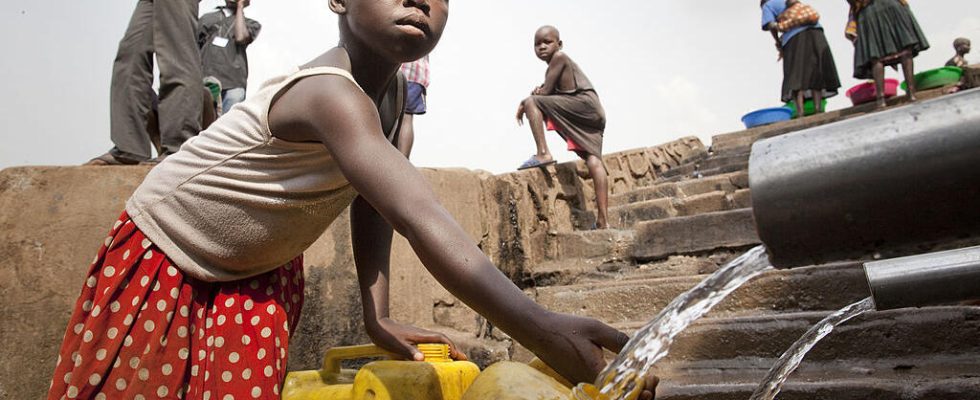Humanity has broken the water cycle “, her “ vital substance “. The words spoken in New York by Secretary-General Antonio Guterres on the second day of the United Nations Water Conference resonate especially in Africa. It is the continent that suffers most, and increasingly, from problems of access to water.
Since 2010, there have been forty times more thirst riots in Africa. The situation is better in Côte d’Ivoire and Mali than in Cameroon or the Democratic Republic of Congo. But on average, 40% of the African population does not have secure access to drinking water.
As the population grows, climate change multiplies and worsens droughts, as in East Africa right now. In parts of Kenya, the price of water has increased fivefold. Elsewhere in Central Africa and the Sahel, floods have stained clean water sources in recent months. In one case as in the other, the lack of drinking water, the cause of 80% of diseases, is causing a resurgence of cholera in fifteen African countries. 70% of Africans are deprived of a sanitation system, ie toilets and wastewater treatment.
Need for adaptation and investments
The water and sanitation sector will therefore have to adapt as a whole, explains, from New York, the director general of the Water Solidarity Program, Christophe Le Jallé.
A few years ago, we had over thirty hours several hundred millimeters [de pluie, NDLR] on Ouagadougou. What system can handle that? It’s very complex. If we talk about sanitation, these are often forms of non-collective sanitation, they are pits. When there is a flood, these pits overflow with the sanitary problems that this poses […] The solution is that at least the first levels of the latrine walls are hard, so cement […]
Interview with Christophe Le Jallé, Director General of the Solidarités Eau Program
Insecurity does not facilitate investments. Progress is too slow for the sixth of the UN’s Sustainable Development Goals, access to safe drinking water, to be achieved by 2030. Yet a dollar put into this sector saves up to six dollars in time. water chore, in agricultural and industrial production, and in educational and health benefits.
►Also read: A special UN conference to deal with the looming “freshwater crisis”
